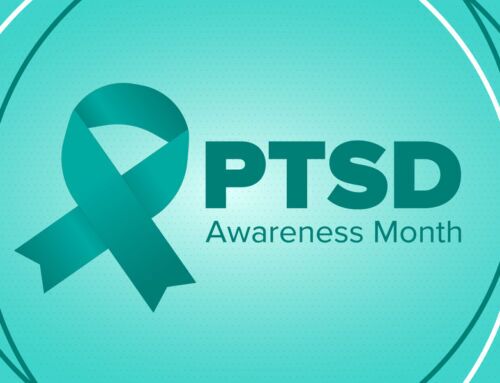10 Reasons Why Nurses Abuse Alcohol, Drugs & Medication
Substance abuse among nurses is an unfortunate reality of a job that aims to protect patients and help people get better. Nurses often work long, hard shifts and have the pressure of life and death on their hands. Patient care is often prioritized over personal life and self-care, which can put them at a greater risk of physical and mental illness than the general population.
There are a number of reasons any type of nurse, from nurse managers to nurse anesthetists and student nurses is at risk of drug or alcohol dependence. Keep reading to learn more about nurses and drug use. If you are a nurse and need assistance in battling addiction caused by drugs or alcohol, contact Greenbranch Recovery today!
According to the 2020 National Survey on Drug Use and Health, registered nurses are at a 22% higher risk of abusing substances than the general population. Whereas nurses once faced disciplinary action or dismissal for having a substance use disorder in the past, rehabilitation is often provided as an Alternative to Discipline program in many states. The National Council of State Boards of Nursing has a range of resources to help people in the nursing profession overcome addiction. Here are some of the reasons why:
1. Greater Access to Controlled Substances Compared to the General Population
One of the main reasons nurses are at a higher risk of addiction than other people is the access they have to controlled substances. It might sound like an excuse, but proximity is a major factor when it comes to addiction. If someone is stressed and anxious but doesn’t know how medications work or have any access to them, there’s a good chance they won’t become a substance abuser. A person who understands that a substance can help them unwind and can easily get hold of it is more likely to do so.
This doesn’t mean everyone who has access to medication will become addicted; they still need to have genetic, environmental, and social risk factors present. However, someone with an existing predisposition to getting addicted is significantly more likely to do so if they have easy access to drugs.
2. Culture of Alcohol Use in the Nursing Profession
Medical professionals have incredibly stressful jobs in that they work long hours and have the pressure of people’s health on their hands. While many individuals have difficult jobs, people depend on nurses to stay alive and healthy. Individuals who work in these high-pressure jobs, such as police officers and lawyers, often have a culture of alcohol abuse and it becomes normalized among the ranks, even though they understand the health risks.
If you’re a nurse struggling with addiction
Call us today or verify your insurance. Our team will do the necessary research to run a no-cost, confidential approval of your specific policy so you can start treatment today.
3. An Environment Where Workplace Bullying Is Rife
Nursing is a competitive profession with a clear hierarchy, and there can be a culture of bullying in some workplaces. When people feel like they struggle to relate to their colleagues, they can get isolated and turn to substances to cope. What’s more, using drugs or alcohol can help someone who’s experiencing bullying forget about their troubles after a long day.
4. Need for Pain Relief Due to Nursing Staff’s Long Shifts
Nurses often work 10- to 12-hour shifts, which are spent always on the go with few breaks and constant pressure to perform. Often, they lift and move patients, which can make them more prone to back problems. Some professionals might turn to pain meds to relieve pain so they can get through their shifts.
5. Health Care Professionals Experience More Stress Compared to Other Professions
As mentioned previously, there’s a unique type of stress associated with nurses. They’re frequently exposed to sickness and death and play a key role in keeping people alive and healthy. Chronic stress is one of the biggest risk factors for substance abuse disorders, putting nurses at a higher risk.
6. Compassion Fatigue
Compassion fatigue is a phenomenon experienced by people who spend a lot of their time caring for others. As a nurse, most of your time is spent looking after people, and you’re unlikely to experience the same amount of love and care that you give. If you don’t practice self-care or you’re lonely in your home life, you might be at an increased risk of addiction.
7. Knowledge of Medications
Nurses know more about medication than most people, and they get to see the relief it brings their patients. This constant exposure could make it more tempting to turn to substances because you understand their mechanisms and how they could help you feel better.
8. Lack of Knowledge About Substance Use Disorders
Just because nurses understand how medication works, it doesn’t mean they’re experts on SUDs. Even medical professionals experience a disconnect when it comes to drug and alcohol use and addiction. It’s normal to believe it can’t happen to you or your problem isn’t as bad as someone with an actual SUD, but the truth is that addiction can happen to anyone.
9. Fatigue Caused by Professional Practice
Working 12-hour shifts on a regular basis can cause anyone to experience burnout. What’s more, nurses often have to work antisocial hours, including evenings, weekends and holidays, and might have to drop their plans at the last minute while on call. This could lead to temptation to find other ways to unwind quickly, such as using alcohol or drugs.
10. The Strain of the COVID-19 Pandemic
COVID-19 has led to an even higher incidence of burnout for nurses due to the increased strain on hospitals. What’s more, the stress of working in an environment where you’re constantly exposed to deadly pathogens could cause you to seek comfort and relief in substances.
Signs of Substance Abuse Issues in Nursing Students and Registered Nurses
If you’re a nurse who’s worried you might be struggling with the negative effects of substance abuse, early recognition can help you get healthy sooner. Let’s look at the signs of a substance use disorder among nursing professionals:
- Disregard for personal hygiene
- Repeated shift count errors from the same RN, nurse manager, nurse anesthetist or other nursing professional
- A nurse whose patients don’t receive medication despite it being reported as dispensed
- A nurse whose patients experience excessive pain despite being assigned their medication
- Frequent trips to the bathroom
- Excessive emotional outbursts
- Isolation and secrecy from colleagues
Which Forms of Drug Abuse Are Most Common Among Nursing Staff?
Due to access and the pressure of being responsible for the well-being of others and keeping patients safe, nurses are more prone to certain substance abuse problems, such as:
- Binge drinking and alcohol use: Alcohol is by far the most common substance abused by nurses, as well as being the most common substance use disorder in the United States.
- Pain medication: Nurses have greater access to pain medication, which is highly addictive but can help relieve stress associated with a physically and mentally demanding job.
- Narcotic medication: Nurses might use narcotic medications such as benzodiazepines or barbiturates for personal use at a higher rate than the rest of the population.
How Does a Nurse Seek Treatment for a Substance Use Disorder?
If you need help for a substance use disorder as a nurse, you might be able to access treatment through an Alternative to Discipline program. While you’re at rehab, you’ll go through a mixture of the following:
- Detox to clear your system of harmful substances and prepare you for the addiction treatment process
- Talking therapies such as cognitive behavioral therapy and motivational enhancement therapy
- Trauma treatment such as EMDR, psychoeducation and cognitive processing therapy
- Group therapy sessions to help you contextualize your experiences, learn more about addiction and provide an opportunity to open up about your feelings
- Medication to help ease withdrawal symptoms if necessary
Get Help for a Substance Abuse Problem Today
If you’re a nurse who might have a substance abuse disorder and you’re worried about impaired practice, personal health and your future career, get in touch with Greenbranch Recovery at (609) 622-5101 today.
Don’t go through the process of recovery alone. There are people who can help you with the struggle you’re facing. Get in touch with one today.
If you have coverage of any kind from a major insurance provider, your treatment is likely covered. We promise to keep your information confidential.




